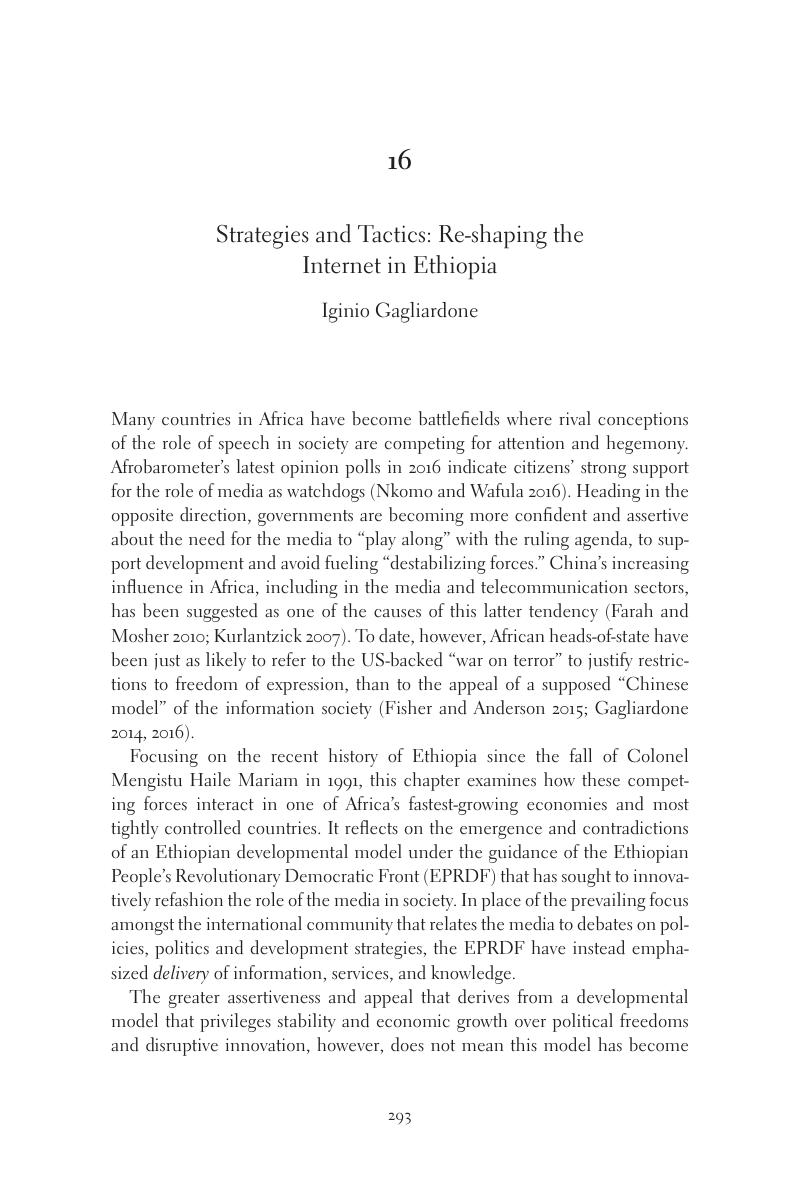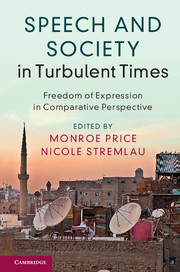Book contents
- Speech and Society in Turbulent Times
- Speech and Society in Turbulent Times
- Copyright page
- Contents
- Contributors
- Foreword
- 1 Introduction: Speech and Society in Comparative Perspective
- Part I Revisiting International Norms
- Part II Dewesternizing Tendencies
- Part III The West as Progenitor and Modifier of Concepts of Free Expression
- Part IV Technologies and Ideologies in Turbulent Times
- 13 Free Speech, Traditional Values, and Hinduism in the Internet Age
- 14 Cyber-Leninism: The Political Culture of the Chinese Internet
- 15 French National Values, Paternalism, and the Evolution of Digital Media
- 16 Strategies and Tactics: Re-shaping the Internet in Ethiopia
- Part V Conclusion
- Index
- References
16 - Strategies and Tactics: Re-shaping the Internet in Ethiopia
from Part IV - Technologies and Ideologies in Turbulent Times
Published online by Cambridge University Press: 17 November 2017
- Speech and Society in Turbulent Times
- Speech and Society in Turbulent Times
- Copyright page
- Contents
- Contributors
- Foreword
- 1 Introduction: Speech and Society in Comparative Perspective
- Part I Revisiting International Norms
- Part II Dewesternizing Tendencies
- Part III The West as Progenitor and Modifier of Concepts of Free Expression
- Part IV Technologies and Ideologies in Turbulent Times
- 13 Free Speech, Traditional Values, and Hinduism in the Internet Age
- 14 Cyber-Leninism: The Political Culture of the Chinese Internet
- 15 French National Values, Paternalism, and the Evolution of Digital Media
- 16 Strategies and Tactics: Re-shaping the Internet in Ethiopia
- Part V Conclusion
- Index
- References
Summary

- Type
- Chapter
- Information
- Speech and Society in Turbulent TimesFreedom of Expression in Comparative Perspective, pp. 293 - 314Publisher: Cambridge University PressPrint publication year: 2017



